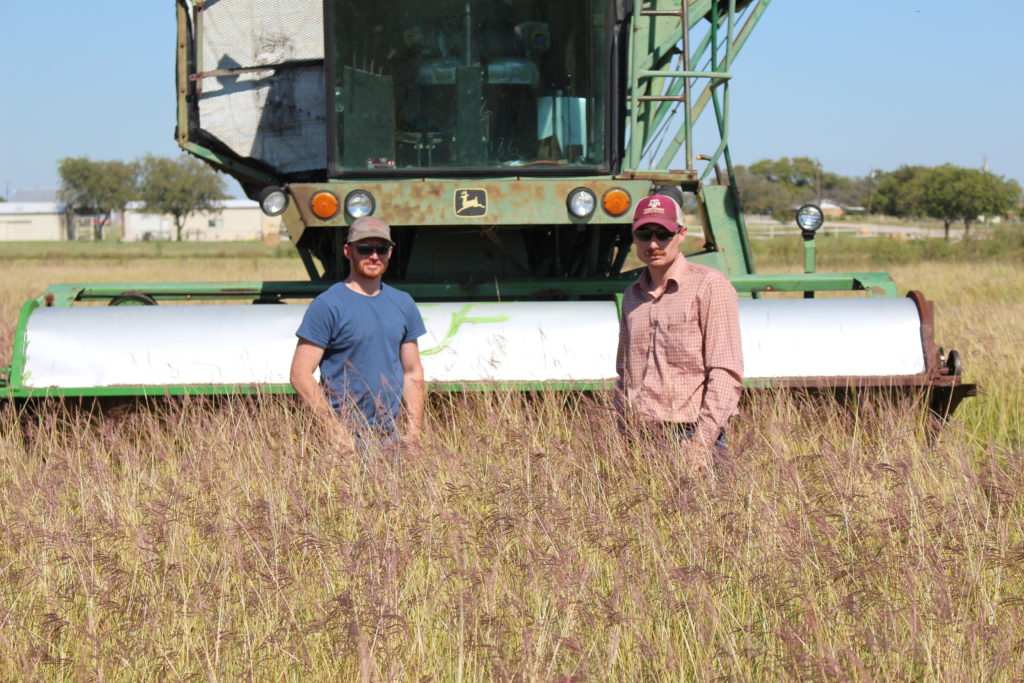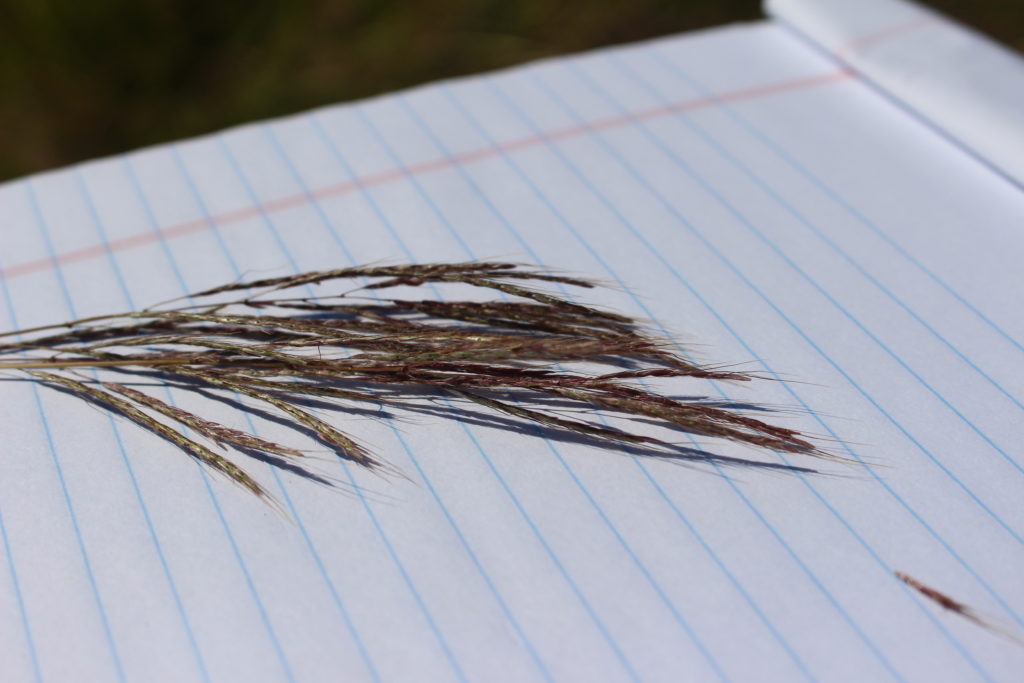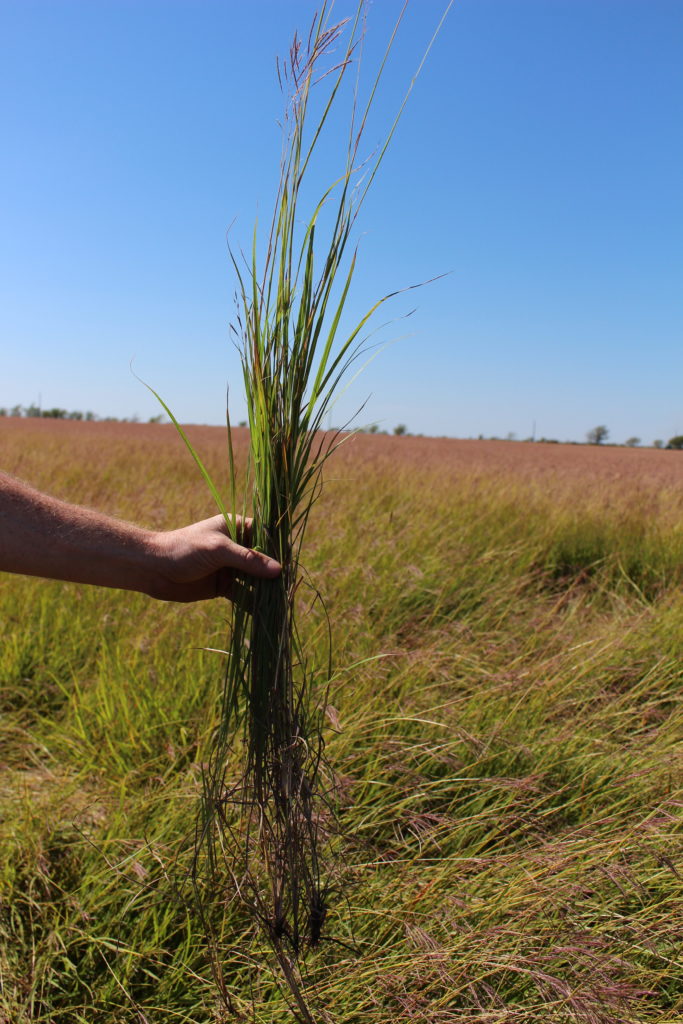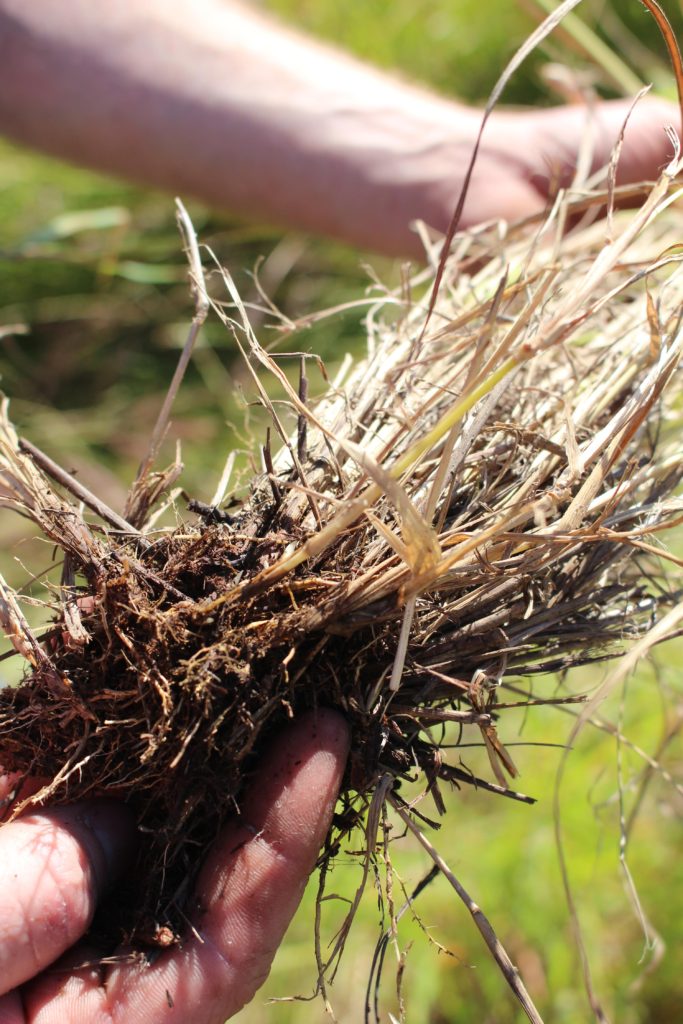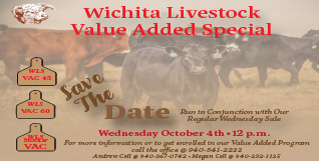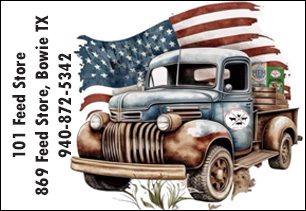Farm & Ranch
Grass seed harvest – ‘WW-B Dahl’ Old World Bluestem
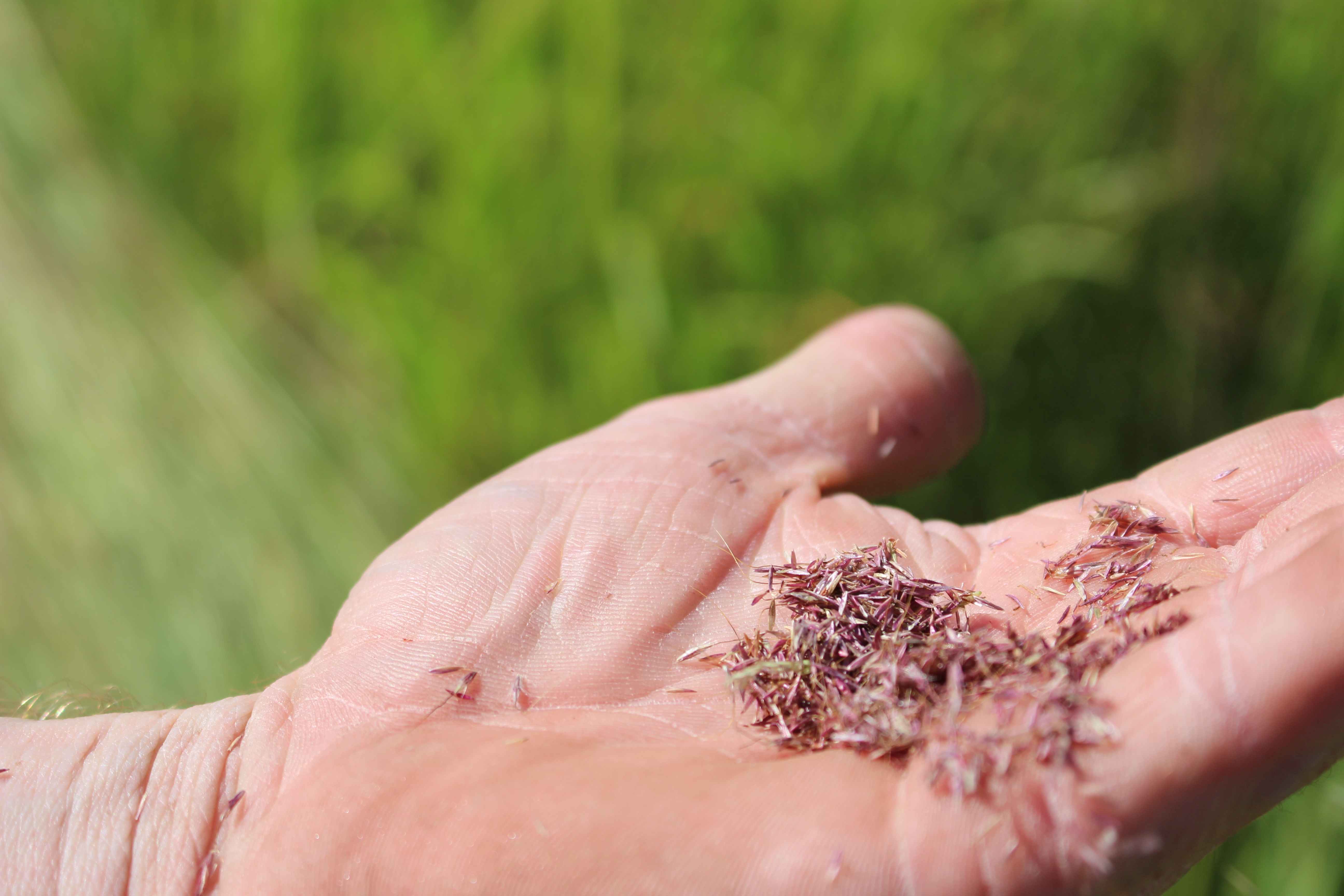
By Jessica Crabtree
On an unusually warm day in October, I visited the Fortenberry brothers on some of their farm country in Slidell, Texas. Brothers Ethan and Bain have been farming together along with their family for years. Both attended college at Texas A & M University obtaining degrees in agronomy. Since they were small, tractors and equipment have been the major interest of the two. It is no surprise that the two came back after college to farm with the family.
Understanding the ends and outs of farming, the brothers are some-what entrepreneurs, always looking to find success in different avenues.
Raising crops and cattle, the two look for opportunities that make them money, a better return for their investment. “Here the soil is black and full of rock. We can’t grow Bermuda with that,” Ethan explained. Growing, cutting and baling hay is a huge portion of the farmer’s production plan. “Hay is hard to grow and after you strip it from the land, you take it away, never putting anything back into the soil,” he added.
While at Texas A&M, the brothers worked for the USDA forage breeding program.
There, Ethan was introduced to the method of harvesting grass seed. Intrigued, Ethan saw it as an opportunity to implement it into his farming program. Four years ago he purchased an old ’80s model John Deere 484 cotton stripper. He had seen how other grass strippers were built and knew the general principle. That’s when the two worked together with their uncle, Les Fortenberry, to develop their own. “Since it was a cotton stripper originally, we had to consider the seed and its size and adapt to it. The interior is lined with grain bags, thick plastic so we can contain as much of the seed as possible,” the farmer said.
To read more pick up a copy of the December 2016 NTFR issue. To subscribe call 940-872-5922.
Farm & Ranch
Meanwhile, Back at the Ranch…
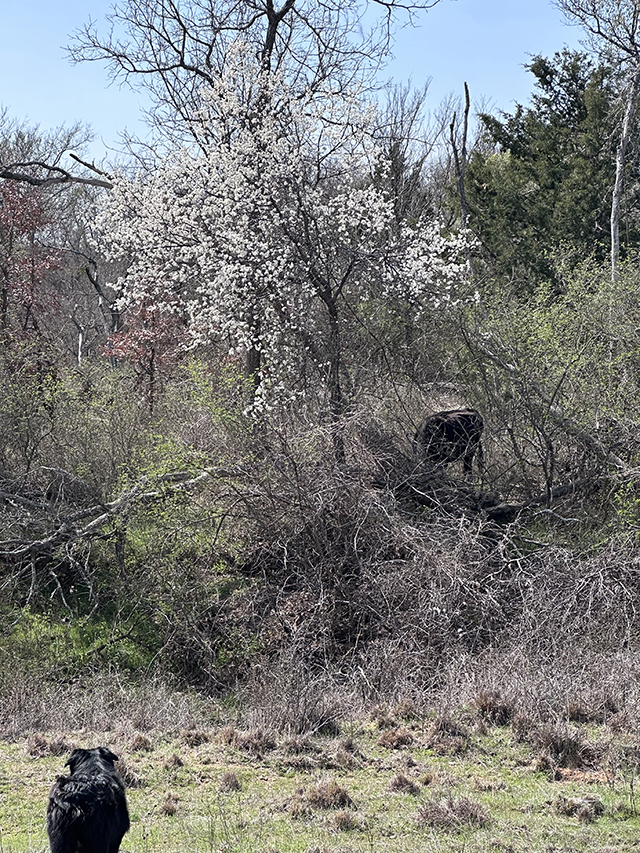
By Rayford Pullen | [email protected]
When May arrives, we start thinking about weed control. With two years of drought under our belts, grass grazed short and hay stocks depleted, what we do now will influence our forage conditions for the entire year. With 75 percent of our annual warm season forages made by July 15 in North Texas, we need to get the grass growing while the sun shines.
Speaking of the sun shining, the biggest deterrent to growing lots of grass is restricted sunlight, and the biggest sun blockers we have are weeds.
Have you noticed weeds are normally just slightly taller than your grass and are probably blocking 90 percent of the sunlight from reaching the grass itself? So obviously, we need to improve conditions, so sunlight reaches the plants we want to grow.
With grass extremely short, more sunlight is hitting the soil surface now, which in turn results in more weed seed germinating. With the moisture we have received, we expect an abundance of weeds this year.
To read more, pick up a copy of the May issue of NTFR magazine. To subscribe by mail, call 940-872-5922.
Farm & Ranch
Land Market Report: March Land Sales
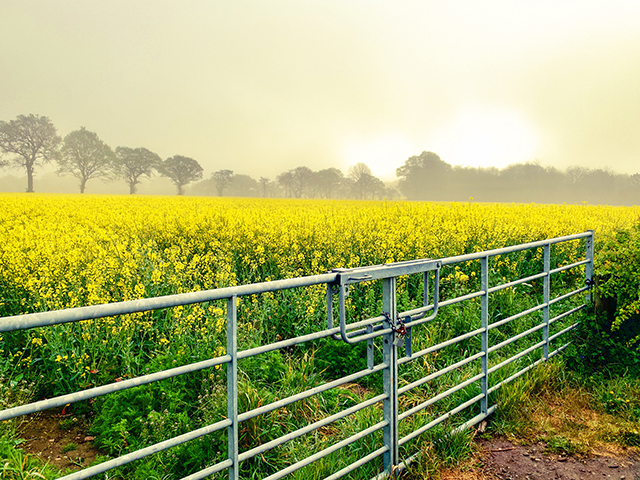
By Jared Groce
Rural land sales are continuing on a steady pace for early spring, with prices holding very strong with the sell-to-list price ratios remaining very high, even on properties that have been on the market for a longer than usual time period. The total number of transactions are picking up once again as the spring selling season kicks off, and the average acreage continues to decrease.
Larger acreage properties seem to be in higher demand than smaller properties currently, with many buyers simply parking cash in real estate to hedge against inflation. Interest rates seem to have settled down and most experts agree that rates will be reduced by the fed this year. Some lenders have programs in place that allow the buyer to reduce their rates without having to go through a full refinance ordeal.
To read more, pick up a copy of the May issue of NTFR magazine. To subscribe by mail, call 940-872-5922.
Farm & Ranch
Texas FFA State Vice President Weston Parr
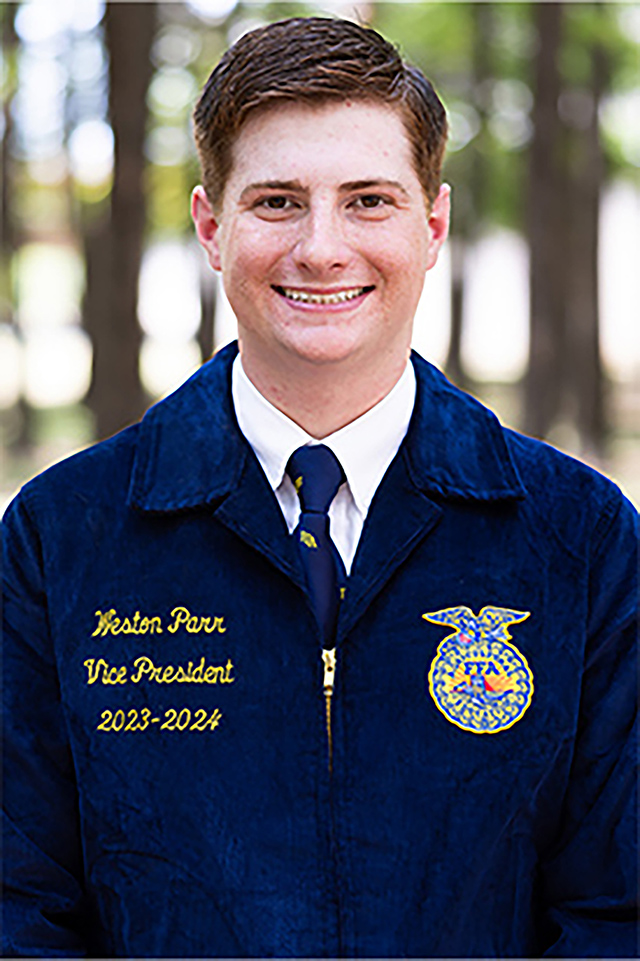
Future Farmers of America was founded by a group of farmers in 1928 with the mission of preparing the next generation of agriculture. It has done just that during its 95-year history, as the organization works to give back to others by following its motto, “learning to do, doing to learn, earning to live, living to serve.”
FFA is an organization made up of state associations, and at the helm of the Texas FFA is a team of 12 officers representing their respective areas within the Lone Star State. These individuals dedicate a year of their lives as they serve members, provide leadership, and work together with the state staff and board of directors to develop policy and lead the organization of over 177,000 members.
North Texas is represented by Area IV and Area IV, stretching from Wilbarger County to Bell County and from Runnels County to Grayson County. This year, those chosen to lead this great area are State President Isaac Hawkins Jr., Area IV, and State Vice President Weston Parr, Area V.
Parr is from the Sam Rayburn FFA chapter and the Area V Association, but the leader who now serves more than 19,100 members of Area V entered the FFA organization as a shy teenager who sat in the back of the room.
“I didn’t talk to a whole lot of people. I didn’t know what I wanted to do with my life or where I could see myself, so I wasn’t involved on my high school campus,” Parr recalled.
“Then I started FFA and slowly but surely, my ag teachers worked me into attending more contests, meeting new people, and speaking. I remember the first time I gave an officer speech to my chapter. I can still remember how embarrassing it was. To see the progression from that moment to speaking on stage at the state convention in front of thousands of people. Now I feel like I can enter the industry I want and be successful all because of what FFA afforded me for five years.”
There is not much Parr did not do during his time in high school. His contest participation included chapter conducting, wool judging, cotton judging, wildlife, and job interview, but his favorite was extemporaneous speaking, which he did not start until his senior year of high school.
“I wish I could go back to my freshman, sophomore, and junior years and start that sooner. I think if I had more time, I would have been more successful than I already was, but that was something I didn’t realize I liked at the time. I’m not naturally somebody who likes to speak in public, but it was actually my favorite,” Parr said.
Parr won several awards during his time competing. In 2023 alone, Parr earned the Texas FFA Service-Learning Proficiency title, was a National FFA Service-Learning Proficiency finalist, and a Texas FFA Extemporaneous Speaking finalist. In addition to his CDE and LDE events during high school, he showed commercial steers at Houston, and boilers at most major shows, participated in the county show with projects in ag mechanics, showed goats from time to time, and showed heifers until graduation.
“FFA provides invaluable resources and knowledge to be successful once you leave high school and you are out of the blue jacket for the first time. I have been a part of a lot of great organizations over the years, and they are all great in their own way, but in my opinion, FFA is the most successful at producing members of society who want to go and do something with themselves,” Parr said.
He was halfway through his time as Area V Association President and attending the national convention when he began to ponder the idea of running for state office.
“This is around the time when you usually figure out if you want to go through and be a state officer or you decide that area officer is your last run. I was unsure of where I wanted to go, but I knew I didn’t want to be done with FFA. I decided maybe it would be a good opportunity not only for me to make more friendships and connections, but also to give back to the program that allowed me to be able to do what I can do today,” Parr explained.
To read more, pick up a copy of the May issue of NTFR magazine. To subscribe by mail, call 940-872-5922.
-

 Country Lifestyles1 year ago
Country Lifestyles1 year agoScott & Stacey Schumacher: A Growth Mindset
-

 Equine8 months ago
Equine8 months agoThe Will to Win
-

 Country Lifestyles7 years ago
Country Lifestyles7 years agoStyle Your Profile – What your style cowboy hat says about you and new trends in 2017
-

 Country Lifestyles4 years ago
Country Lifestyles4 years agoAmber Crawford, Breakaway Roper
-

 HOME7 years ago
HOME7 years agoGrazing North Texas – Wilman Lovegrass
-

 Outdoor9 years ago
Outdoor9 years agoButtercup or Primrose?
-

 Country Lifestyles7 years ago
Country Lifestyles7 years agoDecember 2016 Profile, Rusty Riddle – The Riddle Way
-

 Country Lifestyles8 years ago
Country Lifestyles8 years agoJune 2016 Profile – The man behind the mic: Bob Tallman

